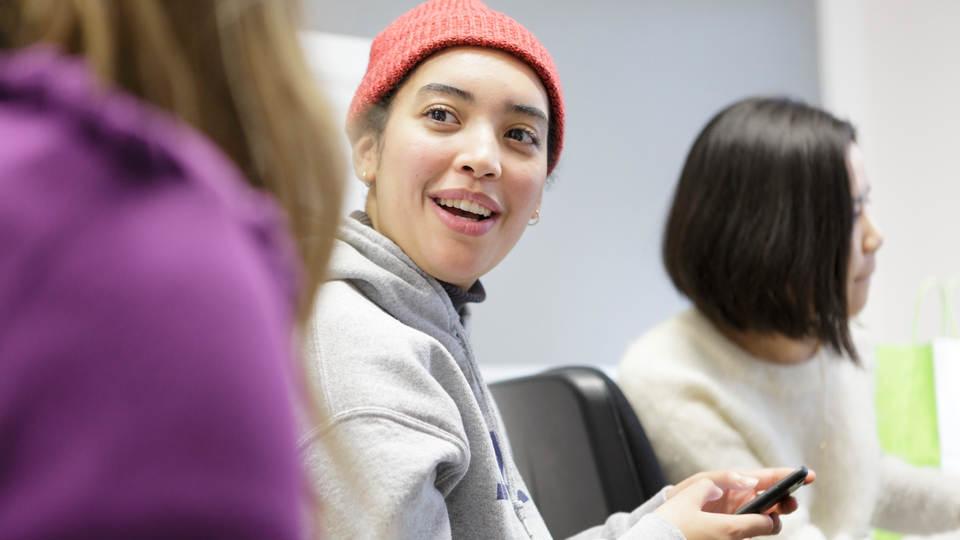Course information
Length
1 year full-time
Department
Course overview
This Diploma is a Pre-Masters programme aimed at postgraduate students who are looking to develop or consolidate their language skills in academic English and study some background theory in these subject areas.
You'll also have the opportunity to study some background theory, familiarise yourself both with ways of working in British academic culture and in the standards required at Masters degree level.
If you wish to go on to study either at Goldsmiths or elsewhere in Britain you'll be given help and support in finding an appropriate programme.
If you pass the programme at the required level (a pass in all modules with an overall score of 50% or more), you can progress onto one of the following MA programmes:
- MA Applied Anthropology and Community & Youth Work
- MA Applied Anthropology and Community Development
- MA Applied Theatre: Drama in Educational, Community & Social Contexts
- MA Art & Politics
- MA Brands, Communication & Culture
- MA Sociology (Urban Studies)
- MA Contemporary Art Theory
- MA Sociology (Cultural Analysis)
- MA Cultural Studies
- MA Culture Industry
- MA Education: Culture, Language and Identity
- MA Film and Screen Studies
- MA Gender, Media & Culture
- MA Human Rights, Culture and Social Justice
- MA International Relations
- MA Media & Communications
- MA Multilingualism, Linguistics & Education
- MA Musical Theatre
- MA Performance & Culture: Interdisciplinary Perspectives
- MA Performance Making
- MA Political Communications
- MA Postcolonial Culture and Global Policy
- MA Promotional Media: Public Relations, Advertising & Marketing
- MA Social Anthropology
- MA Social Research
- MA Sociocultural Linguistics
- MA Understanding Domestic Abuse & Sexual Violence
- MA Visual Anthropology
- MA Sociology (Visual Sociology)
Contact the department
If you have specific questions about the degree, contact Margaret Remana or Marl'ene Edwin.

